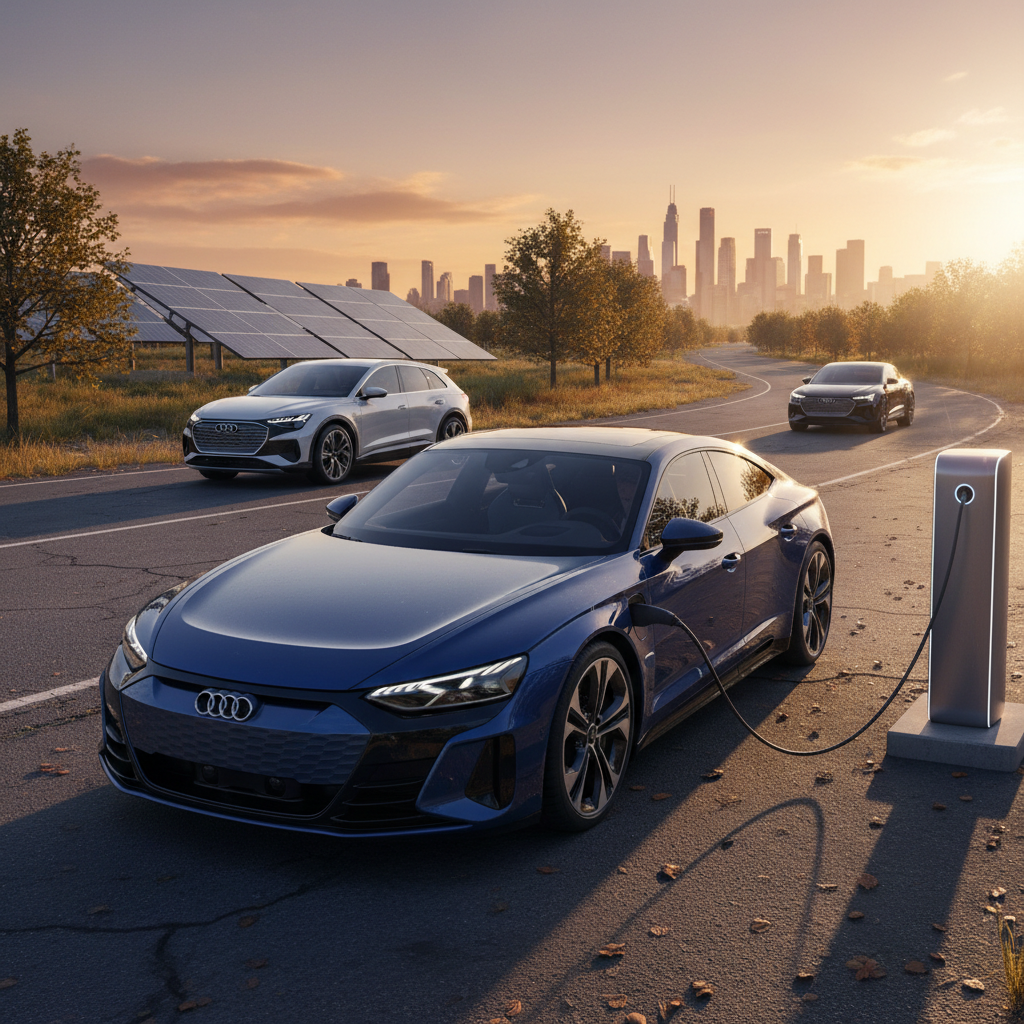If you’re comparing electricity vs gasoline, you’re really asking one thing: “Will an electric car actually save me money and hassle compared with a gas car?” In 2025, with national gas prices hovering a little above $3 per gallon and average U.S. residential electricity around 17 cents per kWh, the answer depends on how you drive, where you live, and whether you can charge at home.
The short version
Why “electricity vs gasoline” matters more in 2025
Over the past few years, both sides of the electric vs gas debate have shifted. Gasoline prices spiked in 2022, then eased; in 2024 the U.S. average was about $3.30 per gallon, and in 2025 it has trended just above $3 with forecasts around $3.10 for the year. At the same time, electricity rates have risen modestly; recent federal data puts the average residential price around 17 cents per kWh in 2025. Those numbers matter because they directly translate into your cost per mile and your long‑term ownership costs.
Electricity vs gasoline at a glance (2025 US averages)
Quick answer: Is electricity cheaper than gasoline?
In most real‑world scenarios, yes. If you charge mainly at home on standard residential rates, an EV usually costs about one‑third to one‑half as much per mile as a comparable gasoline car. If you rely heavily on public DC fast charging, especially at premium rates, the savings shrink and can sometimes match or slightly exceed gasoline costs. But even then, EVs keep an advantage on maintenance and, often, on long‑term value.
Rule of thumb
Electricity vs gasoline cost per mile
To make the comparison fair, let’s look at simple, round‑number examples that reflect current U.S. averages. Your own results will vary by state and driving style, but the pattern is consistent.
Step 1: Start with national averages
Using typical 2025 U.S. prices
Electricity assumptions
- Average residential electricity: $0.17 per kWh
- Typical EV efficiency: 3–4 miles per kWh
- Home Level 2 or overnight Level 1 charging
Gasoline assumptions
- Average gasoline: ≈$3.10 per gallon
- Typical modern car: 25–30 mpg
- Mix of city and highway driving
Electric vs gas cost per mile: Sample math
Illustrative examples based on common EV efficiencies and MPG ratings with 2025 average U.S. energy prices.
| Scenario | Assumptions | Fuel cost per mile |
|---|---|---|
| EV – efficient | 4 mi/kWh at $0.17/kWh | $0.043 per mile |
| EV – less efficient | 3 mi/kWh at $0.17/kWh | $0.057 per mile |
| Gas – efficient | 30 mpg at $3.10/gal | $0.103 per mile |
| Gas – typical | 25 mpg at $3.10/gal | $0.124 per mile |
Your exact numbers will depend on local rates, your vehicle, and how you drive.
What that means in dollars you feel
Public fast charging changes the picture. Many DC fast‑charging networks now effectively cost the equivalent of paying $0.35–$0.50 per kWh. At 3 miles per kWh, that’s roughly $0.12–$0.17 per mile, similar to, or sometimes higher than, current gasoline costs. That’s why your personal mix of home vs public charging is crucial.
Watch out for premium fast‑charge rates

Gas vs electric emissions: Which is cleaner?
On emissions, electricity vs gasoline is less of a coin toss and more of a sliding scale in favor of EVs. Gasoline vehicles burn fuel on board, so tailpipe CO₂ rises directly with every mile you drive. EVs, by contrast, have zero tailpipe emissions, but electricity generation and battery manufacturing both carry an environmental cost.
Where EV emissions advantages come from
Why electricity usually beats gasoline over the full life of the vehicle
No tailpipe emissions
Cleaner power mix over time
Lifecycle advantage
Coal vs renewables: why location matters
Maintenance: Fewer moving parts, fewer surprises
Fuel is only half the story in the electricity vs gasoline debate. The other half is what you spend on keeping the vehicle running. EVs simplify things dramatically because they eliminate entire systems that routinely fail or require service in gasoline cars.
Typical gasoline car maintenance
- Regular oil and filter changes
- Transmission fluid and potential transmission repairs
- Exhaust system, catalytic converter, oxygen sensors
- Engine timing components, belts, spark plugs
- Higher brake wear in stop‑and‑go driving
Typical EV maintenance
- No engine oil, no spark plugs, no exhaust system
- One‑speed gearbox instead of complex transmission
- Brake pads often last longer thanks to regenerative braking
- Coolant and cabin filters still need periodic service
- Tires may wear a bit faster on powerful EVs
Why used EVs can be attractive
Convenience: Charging at home vs stopping for gas
With gasoline, you’re used to the routine: wait for the low‑fuel light, stop at a station, swipe your card, and spend a few minutes at the pump. With electricity, refueling looks more like how you charge your phone, small top‑ups whenever the car is parked, especially at home.
How “refueling” feels in daily life
Electricity vs gasoline from a driver’s perspective
Home charging
Public charging
Time cost
Apartment and street‑parking realities
Electricity vs gasoline when buying used
For used‑car shoppers, the electricity vs gasoline question is about more than just today’s pump prices. You’re weighing upfront price, expected repairs, fuel costs, and resale value over the next several years.
Used gasoline car: Pros & cons
- Pros: Lower purchase prices in many segments; easy fueling anywhere; predictable maintenance routines any shop can handle.
- Cons: Higher fuel spend; more wear items as the car ages; risk of expensive engine or transmission repairs.
Used EV: Pros & cons
- Pros: Much lower fuel and routine maintenance costs; smooth, quiet driving; zero tailpipe emissions.
- Cons: Battery health varies by vehicle; range can decline with age; charging access is crucial.
How Recharged reduces EV uncertainty

How future electricity and gasoline prices could shift the math
One hesitation many shoppers have is, “What if energy prices change?” That’s smart to ask, because both electricity and gasoline are moving targets. Gas prices react quickly to crude‑oil swings, refinery outages, and global events. Electricity prices move more slowly and are influenced by long‑term investments in power plants, transmission, and renewables.
- Recent government forecasts expect U.S. gasoline to average around the low $3 per gallon range in the mid‑2020s, with plenty of month‑to‑month volatility.
- Residential electricity prices have trended upward over the past decade but usually change in small, regulated steps rather than sudden spikes.
- As renewables expand and battery storage becomes cheaper, the long‑term cost of generating electricity could stabilize or even decline in some regions.
- More EV adoption may push utilities to offer time‑of‑use (TOU) plans, letting you pay much less per kWh if you charge overnight. That can widen the electricity vs gasoline cost gap further in favor of EVs.
Locking in your advantage
Checklist: Should your next car be electric or gasoline?
Quick decision checklist
1. Can you charge where you park?
If you have a driveway, garage, or a dedicated spot with access to an outlet, electricity has a big edge. If you rely solely on street parking with no realistic charging plan, gasoline may still be more practical, for now.
2. How many miles do you drive each year?
The more you drive, the more fuel savings matter. High‑mileage commuters often see the biggest financial benefit from switching from gasoline to an EV.
3. Is most of your driving local or highway?
EVs excel in city and suburban driving with lots of stop‑and‑go, where regenerative braking shines. If you’re constantly doing long highway runs with no home charging, fast‑charging costs and time may offset some advantages.
4. What’s your budget, including fuel and maintenance?
Don’t just compare sticker prices. Add in expected fuel, maintenance, and repairs over the next 5–7 years. In many cases, a slightly higher‑priced used EV pencils out cheaper than a lower‑priced gasoline car once you include fuel and service.
5. How long do you plan to keep the vehicle?
The longer you keep the car, the more years you have to benefit from lower electricity and maintenance costs. Short‑term leases or flips put more emphasis on initial price and incentives.
6. Do you care about emissions and air quality?
If reducing your personal CO₂ footprint or tailpipe pollution matters to you, an EV powered by the grid almost always beats a gasoline car, and it tends to get cleaner as the grid gets greener.
FAQ: Common questions about electricity vs gasoline
Frequently asked questions
Bottom line: Who wins, electricity or gasoline?
When you add everything up, fuel cost per mile, maintenance, emissions, and day‑to‑day convenience, electricity beats gasoline for most drivers who can charge where they live or work. Gasoline still has the advantage in areas with limited charging, for high‑mile highway drivers who can’t easily plug in, and for shoppers who simply aren’t ready to change long‑established habits.
If you’re considering a used EV, the key is removing uncertainty: know the battery health, understand your charging options, and compare total ownership cost rather than just the sticker price. That’s exactly what Recharged is built for, pairing you with a used EV that fits your budget, giving you a transparent Recharged Score Report, and helping you with financing, trade‑in, and nationwide delivery.
Run your own numbers using your local electricity and gas prices, then take a close look at what you spend today on fuel and maintenance. For many shoppers, that exercise is the moment when electricity vs gasoline stops being an abstract debate and starts looking like a clear, practical path toward lower costs and a better driving experience.



